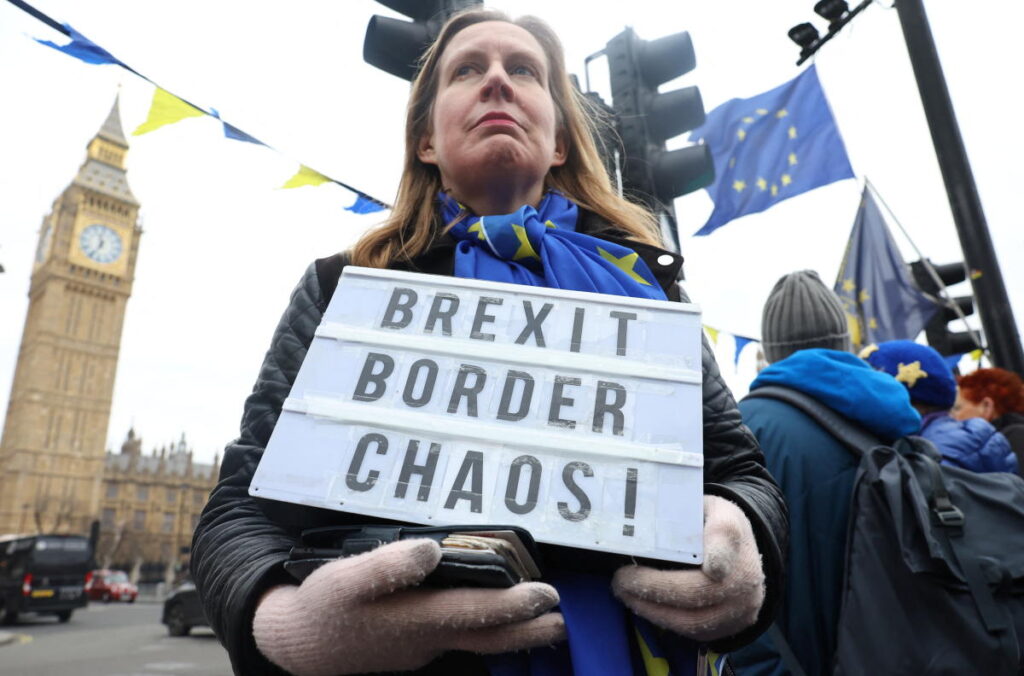A recent report by the Resolution Foundation highlights the growing trade divide in the UK post-Brexit, particularly between goods and services, against the backdrop of an impending global tariff war initiated by US president-elect Donald Trump. As Trump prepares to implement his international trade policies upon taking office, the repercussions for UK exports, particularly in the goods sector, could be profound. Since the Brexit referendum, the UK has witnessed a decline in goods trade while the services sector has flourished, revealing an increasingly stark contrast in trade dynamics. Goods exports have only grown by 0.3% annually since 2019, significantly lagging behind the OECD average of 4.2%. In sharp contrast, service exports have surged by 7.5% over the same period, surpassing the OECD average of 6.1%. This divergence underscores a transitional trade pattern that has emerged in the wake of Brexit.
The services sector, which now comprises 54% of the UK’s total exports, has been bolstered by notable performances in insurance and pensions, as well as various business services that encompass legal services, research and development, and management consulting. The UK has managed to increase its market share in these sectors relative to other OECD countries, with a gain of 0.9 percentage points, while competitor nations like France and the US have seen declines in their respective market shares. The report suggests that this success is partially attributed to fewer barriers associated with exporting non-physical products, making it easier for the UK to maintain a competitive edge in services, even as traditional goods exports face hurdles.
In contrast, Trump’s administration is signaling a more aggressive approach towards trade, highlighting the potential for new tariffs that could significantly impact the UK’s export landscape. Trump has made headlines with threats of imposing hefty tariffs, such as 100% on fourteen nations accused of undermining the US dollar and 50% on countries like China, Canada, and Mexico. If Trump extends these measures to the UK, particularly focusing on goods, it could exacerbate the already problematic situation for UK exporters. Should general tariffs ranging from 10% to 20% be applied, they would likely mirror the non-tariff barriers that have emerged post-Brexit, further exacerbating the challenges faced by British exporters in the goods sector.
The implications of a potential trade war, especially one predicated on a protectionist stance by the US, could widen the chasm between goods and services performance in the UK. As the Resolution Foundation posits, firms relying heavily on goods exports to the US could encounter formidable obstacles, stunting their growth and potentially leading to a contraction in the goods trade. The divergence in performance may compel UK firms to strategize anew, heavily influencing their international trade operations and partnerships as they navigate the complexities of post-Brexit trade agreements and emerging global tariff policies.
To mitigate these risks, the Resolution Foundation recommends that the UK government adopt a proactive stance towards tariffs, seeking to minimize tensions while promoting smoother trade channels for goods. This involves taking an impartial approach rather than taking sides in potential trade disputes, emphasizing the need for strengthening cross-channel trade arrangements. Moreover, a concerted effort should be made to adopt a global perspective that prioritizes the reduction of barriers to service trade, which is increasingly becoming vital to the UK economy amidst rising uncertainties in goods exports.
In summary, the ongoing evolution of trade patterns in the UK, magnified by Brexit and the looming tariff strategies from the US, paints a complex picture of the future landscape for British firms. The growth in services represents a silver lining against the backdrop of goods trade struggles, yet the potential for increased tariffs could pose significant threats. The call for the UK government to take a balanced approach in response to these challenges is critical, particularly as exporters must navigate an uncertain economic environment shaped by both domestic and international forces. The UK’s ability to adapt and strategically position itself in the global market will therefore be pivotal in addressing these trade divides and ensuring future economic resilience.

